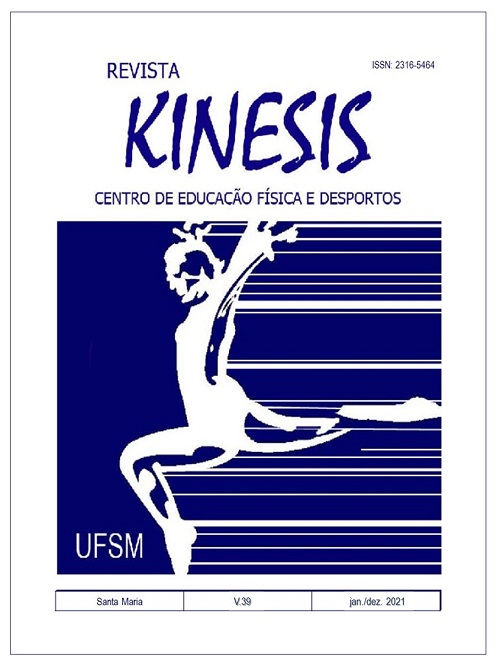Galperin's theory in the physical education teaching process: contributions and approaches
DOI:
https://doi.org/10.5902/2316546441440Keywords:
Galperin, Physical Education, TeachingAbstract
This article aims to relate Galperin’s theory to the management of Physical Education teaching, by bibliographic way, explaining the formation of concepts through assimilation stages and the didactic principles by Galperin. To that end, we connect the theoretical-methodological proposal of Overcoming Critical Physical Education and the Historical-Cultural Theory. We conclude that the concepts occur through stages assimilation with didactic principles by Galperin, and the relationship with Physical Education happens within this process of teaching and learning.Downloads
References
ASBAHR, Flávia da Silva Ferreira, NASCIMENTO, Carolina Picchetti. Criança não é Manga, não amadurece: Conceito de Maturação na Teoria Histórico-Cultural. PSICOLOGIA: CIÊNCIA E PROFISSÃO, 2013, 33 (2), 414-427.
CERVO, Amado Luiz; BERVIAN, Pedro Alcino. Metodologia científica. 4ª ed. São Paulo: MARKON Books, 1996.
COLETIVO DE AUTORES. Metodologia do Ensino de Educação Física. São Paulo: Cortez, 2012.
NÚÑEZ, Isauro Beltrán. Vygotsku, Leontiev e Galperin: formação de conceitos e princípios didáticos. Brasília: Liber livros, 2009. 216 p.
SEVERINO, Antônio Joaquim. Metodologia do trabalho científico. 20.ed.rev.e ampl. São Paulo: Cortez, 1996.
VIGOTSKI, Lev semenovich. Formação Social da Mente: o desenvolvimento dos processos psicológicos superiores. 6ª ed. São Paulo: Martins Fontes,1998, p. 191
Downloads
Published
How to Cite
Issue
Section
License
The works must be submitted in the digital format of the SEER platform, via the electronic address: http://periodicos.ufsm.br/kinesis/index. In case of any doubts, contact the editorial team through the email kinesisrevista@ufsm.br. The authorship that publishes in the Kinesis journal agrees to the following terms:
- They retain copyright and grant the journal the right of first publication.
- They allow and are encouraged to publish and disseminate their work online (e.g., in institutional repositories or on their personal page) as this can cause positive alterations, as well as increase the impact and quotation of the published work.







